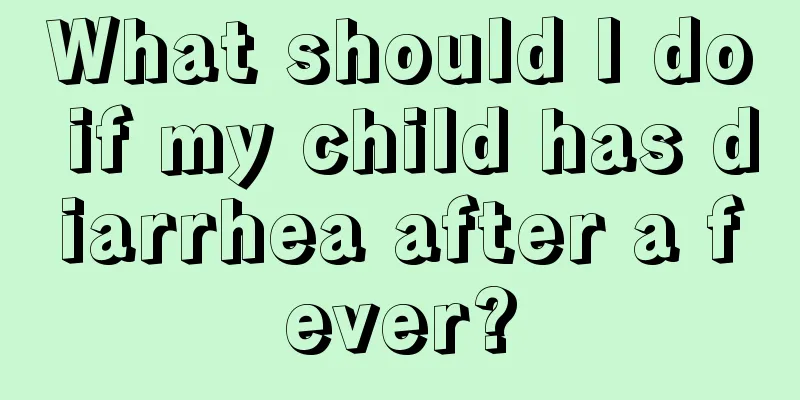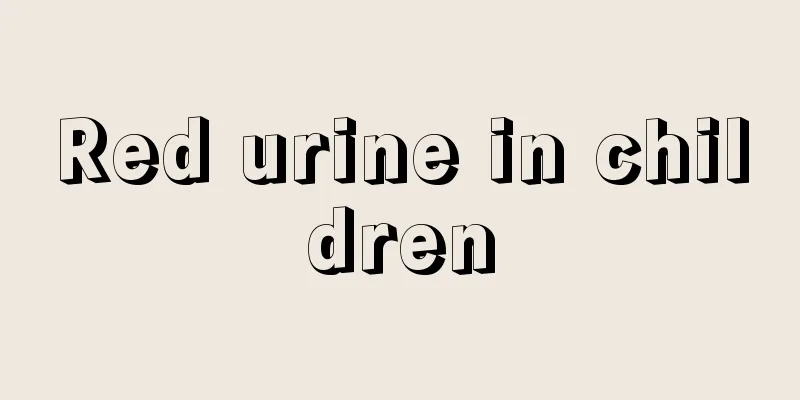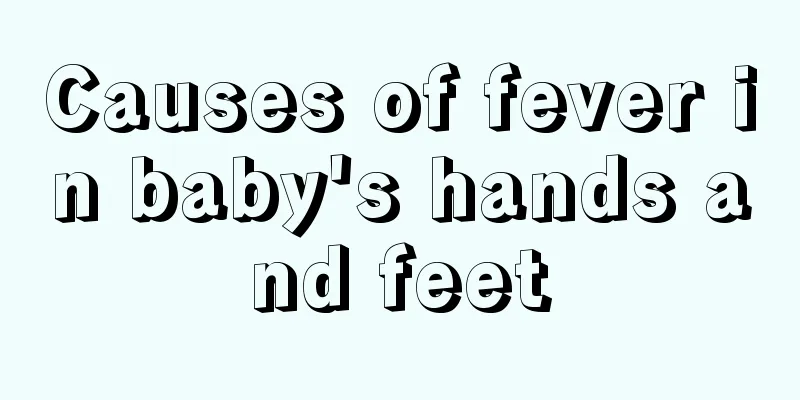Why do young children sweat when they sleep at night?

|
Sometimes the weather is cool, but when a child finishes feeding and goes to sleep at night, the child's head and body are still sweaty. Why do children sweat when they sleep at night? Many mothers are very worried. Is the child sick? If your baby sweats on his head when he is playing during the day or within an hour of falling asleep, there is definitely no problem, because the child's nervous system is not yet fully developed. Due to rapid development and active metabolism, the body generates more heat than adults. The sympathetic nerves in charge of sweat glands are not controlled by the higher nerves of the brain, so he sweats more. As long as his appetite is normal during the day and his spirit is active, parents don't need to worry. However, if the baby keeps sweating at night, often wets the pillow, has thinning hair, a "bald spot" on the back of the head, and is not as firm as other children of the same age, then you should suspect that the baby is calcium deficient. Also, are you covering your baby too much? It is normal for his hands and feet to be cold. Check if they are a little damp. Normally, a child's hands and feet should be a little damp. Because they are damp, they are easily cold. The cold is caused by sweating. In this season, you don't need to cover your baby at night. Just cover your baby's feet to prevent him from overheating and sweating. Infants and young children have an active metabolism and are active and lively. Some of them cannot rest even after going to bed at night, so they may sweat on their heads after falling asleep. The so-called physiological hyperhidrosis refers to sweating during sleep when the child is well-developed, healthy, and has no disease. Parents are often accustomed to deciding the best environmental temperature for their children based on their own subjective feelings, and like to cover their babies with more blankets and keep them tightly covered. Because children's brain and nervous system are not yet fully developed and they are in the growth and development period, their body metabolism is very active. Coupled with the stimulation of overheating, they can only regulate normal body temperature by sweating to evaporate the heat in the body. In addition, drinking milk, malted milk or eating chocolate before going to bed can also cause sweating in children. Some parents give their children milk, malted milk, etc. before they go to sleep. After the child falls asleep, the body produces a large amount of heat, which is mainly dissipated through sweating through the skin. In addition, too high room temperature or excessive warmth can also cause children to sweat while sleeping, which are all physiological sweating. However, if the child is usually weak and sweats profusely when falling asleep at night, as if he is being drenched in water, or even sweats all night long, wetting the pillow and clothes, and is accompanied by symptoms such as irritability, crying, and weight loss, then it is pathological hyperhidrosis. A common cause is vitamin D deficiency rickets. In addition to excessive sweating at night, there are also symptoms such as irritability, restless sleep, easy awakening, square head, baldness, and pigeon chest. If you have the above symptoms, you can supplement vitamin D and calcium in appropriate amounts under the guidance of a doctor. When eating, you should also pay attention to eating more foods rich in calcium, such as fish, shrimp skin, etc. With aggressive treatment, excessive sweating can be corrected quickly. If children often sweat before dawn and have pale complexion and a weak and rapid pulse, they may have hypoglycemia. This can be corrected by giving them some sugar water or eating some cakes. Why do young children sweat when they sleep at night? Through the above introduction, we also understand the reasons why young children sweat at night, which are mainly physiological sweating and pathological sweating. If the baby sweats severely, you should go to the hospital for treatment in time. After excluding pathological sweating, if the baby is only sweating physiologically, mothers do not need to worry about the baby's health. |
<<: Why do children's teeth turn yellow?
>>: What are the symptoms of calcium deficiency in newborn babies?
Recommend
What to do if your baby's eyes are red
Parents with children at home must have noticed t...
What should I do if my baby has a runny nose for a week?
If your child has a runny nose all the time, you ...
The best treatment for cerebral palsy in children
Cerebral palsy in children is a very common disea...
What to do if your baby doesn't like to laugh
In our daily life, many parents will always find ...
What should I do if my baby has a fever and sweaty palms?
The baby's physical health is very susceptibl...
What are the recipes for 24-month-old babies?
A 24-month-old baby is exactly two years old at t...
Why do newborns love to push?
After the child is born, if parents find that the...
What foods are good for children's teeth
Childhood is the period when teeth grow most freq...
How to treat ringworm in children?
A lot of bubbles suddenly appeared on the child&#...
Are active children smart?
Different people will show different personality ...
Height and weight of a boy at three and a half weeks
People's ideas and concepts have changed a lo...
How to wash hair for a four-year-old girl
When the baby is growing, parents need to pay spe...
When is the best time for babies to eat DHA?
For parents, their babies are their most precious...
How to teach a disobedient child?
Disobedient children always cause parents compari...
Symptoms of intracranial hemorrhage in infants falling out of bed
The phenomenon of babies falling out of bed shoul...









